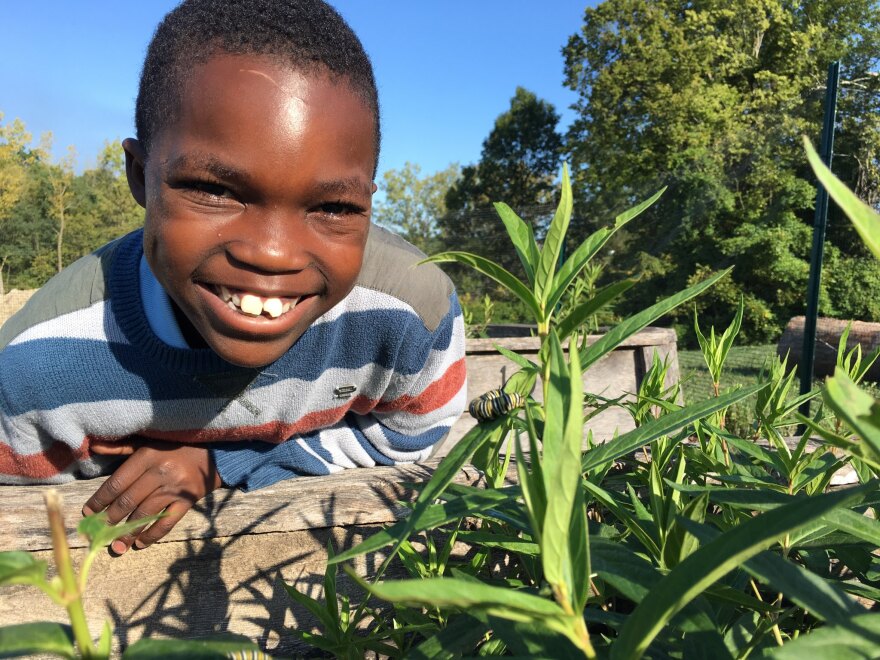Anaiah Brooks is a sixth grader at John P. Parker school in Madisonville. She wants to be a baker when she grows up. She already knows chemistry is a big part of baking. And so Anaiah is big into science.
"In our classroom for science we did an exploding Coke bottle. We put the Mentos in it with different tops to see which one would make it go higher, and it almost went seven feet in the air."
That's not the only experiment she and classmates have conducted. Her classroom keeps mussels in an aquarium as part of a partnership with the Ohio River Foundation and Kentucky Fish and Wildlife. Students have also participated in a study on butterflies.
Stephanie Norton is an intervention specialist for 5th and 6th graders at John P. Parker.
"We got a grant from Monarch Watch and planted some milkweed. And we partnered with Dr. (Patrick) Guerra at the University of Cincinnati who studies the migration. And we're going to start to help him collect data on our campus for the monarch population and how they use environmental cues to get to Mexico and back," Norton says.

CPS also handed out those special glasses so students could watch the partial solar eclipse last August.
These are all examples of citizen science. That's when the public is enlisted to collect data.
At least two professional scientists welcome the participation. Dean Regas, astronomer at the Cincinnati Observatory, says there aren't enough astronomers and telescopes to see everything in the night sky.
"This is really something that astronomers depend on; (having) citizen scientists, especially amateur astronomers to watch something even as simple as looking at the planets and seeing how the planets are changing over time," Regas says.

He says there are those who are skeptical about science and scientists. That includes people who question the safety of vaccines, or the data on climate change.
The dean of behavioral and natural sciences at Mount St. Joe says questioning science just makes the answers more robust.
"Hostility that some people may have may be coming from a whole range of backgrounds," says Gene Kritsky. "It could be political, it could be philosophical. But this always questioning is part of the scientific method and allows us to have science move forward."
For years, Kritsky has asked people to report the emergence of cicadas. He says his team receives e-mails, photos and videos, many with meta-data, pinpointing where they saw cicadas.
He says two things lead to participation in citizen science: people want to help, and they're curious.
"I think it gets back to a fundamental thing. We were all born scientists. As soon as we were crawling around on the ground, if we found something strange, we picked it up, looked at it, and we probably put it in our mouths. That's an experiment."
Back at John P. Parker school, Stephanie Norton is looking for other ways to get students involved in scientific projects. She says the school is about to start working with ORSANCO on water quality monitoring for Duck Creek. She's also wants to start a weather station so students can learn the difference between weather and climate.
"That's a real big goal of our program here, global environmental literacy. To get the students to be active contributors to monitoring the environment, collecting data and knowing what to do with that data," she says.
You have another opportunity later this month for citizen science. Naturalists are asking people to report the number and types of birds they see. Scientists use the data to get an idea of how bird populations are doing. More than 160,000 people took part last year. The Great Backyard Bird Count is February 16 through the 19.



